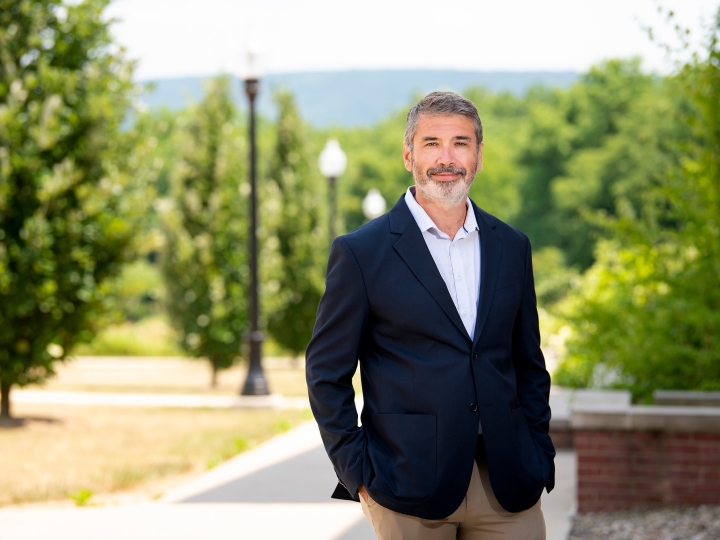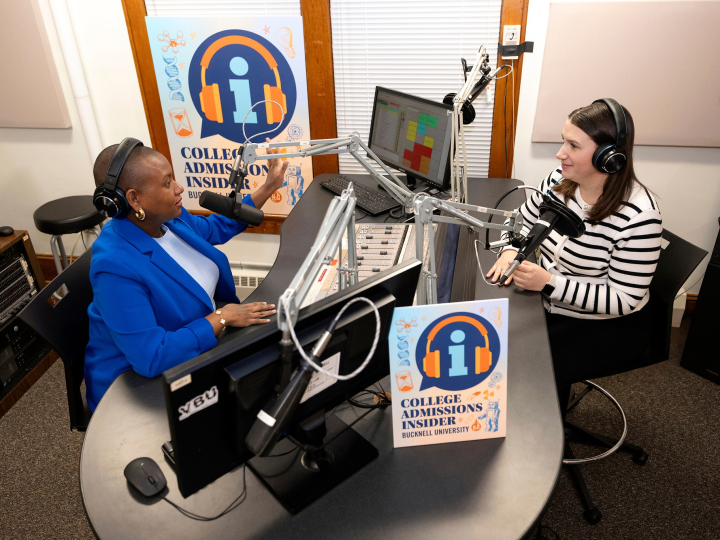A Call to Arms
January 12, 2017
It's Veteran's Day 2016, and a group of Bucknell faculty and students are preparing to meet at Brasserie Louis on Lewisburg's Market Street. They'll be plotting a journey to the fields of Flanders and other battlefields in Belgium and northern France where so many fell — 8.5 million on all fronts — and still remain. Victims of the Great War, 1914–18. In two years, it will be 100 years since the Armistice with Germany — that 11th hour of the 11th day of the 11th month of 1918.
By then, the team led by Professor David Del Testa, history, with the help of Professor Adrian Mulligan, geography, and student researchers Amy Collins '18, Anthony Paolella '18, Julia Carita '20 and Julia Stevens '20, will have been to Europe and back with rich Bucknell-related stories to share. Bucknell Magazine editor Sherri Kimmel will be along to report on the excursion for a future issue, and Dante Fresse '18 will film a short documentary.
This May, the group will spend 10 days in France and Belgium, recreating the experiences of a select few Bucknellians — many of whom were the same age as today's student researchers a century ago, when they fought and, in some cases, died. Each team member chose a Bucknell graduate to research and eventually chronicle for a chapter in a short book.
Their selection processes varied. Julia Carita chose Thomas Agnew, Class of 1920, she says, "because he served in the ambulance corps. He also won a French Croix de Guerre with a Bronze Star for bravery."
Mulligan matched with a pilot, Joseph William Aleshoukas, Class of 1915. "His unit saw combat but was also involved in a lot of reconnaissance and mapping, which is something I'm especially interested in, as a geographer," he says.
Julia Stevens was drawn to Katherine Baker, Class of 1892. "Women generally did not get enough recognition for their efforts," but part of a French orphanage is named for her, she says.
Del Testa, who teaches courses on World War II and the Vietnam War, was drawn to the topic after Isabella O'Neill, University archivist, described some items in her care related to Bucknell's involvement in World War I.
In 2013, Del Testa began building the Bucknellians in WWI database, which now contains 715 men and women who served overseas or at home in the military, ambulance corps or strategic government service. Of that number, 35 died as a result of their participation in the war. "I realized that the sheer commitment of Bucknellians to the war made researching it an interesting prospect, and I also knew that the project would attract undergraduate research interest as well," he says.
Two students stepped forward in 2014, supported by the Presidential Fellows Program. Since then, two other presidential fellows and a Dalal fellow, funded by The Dalal Family Fund for Creativity and Innovation, have worked on the database, filling in vital missing data.
The database already is being used by Del Testa's History 100 students, and a condensed version will be available to the public.
Del Testa, who expects the project will continue until the 100th anniversary of Armistice, welcomes input from anyone who has information or memorabilia related to Bucknellians involved in the war. Some alumni have already contributed chilling journal entries by ancestors who witnessed mass disease and death.
Collins, now in her third year with the project, says, "I've become a better student, historian and person because of this research opportunity, and it's changed the way I see the world. World War I was especially significant to the U.S. because that was what inevitably made us a great power on the world stage."

